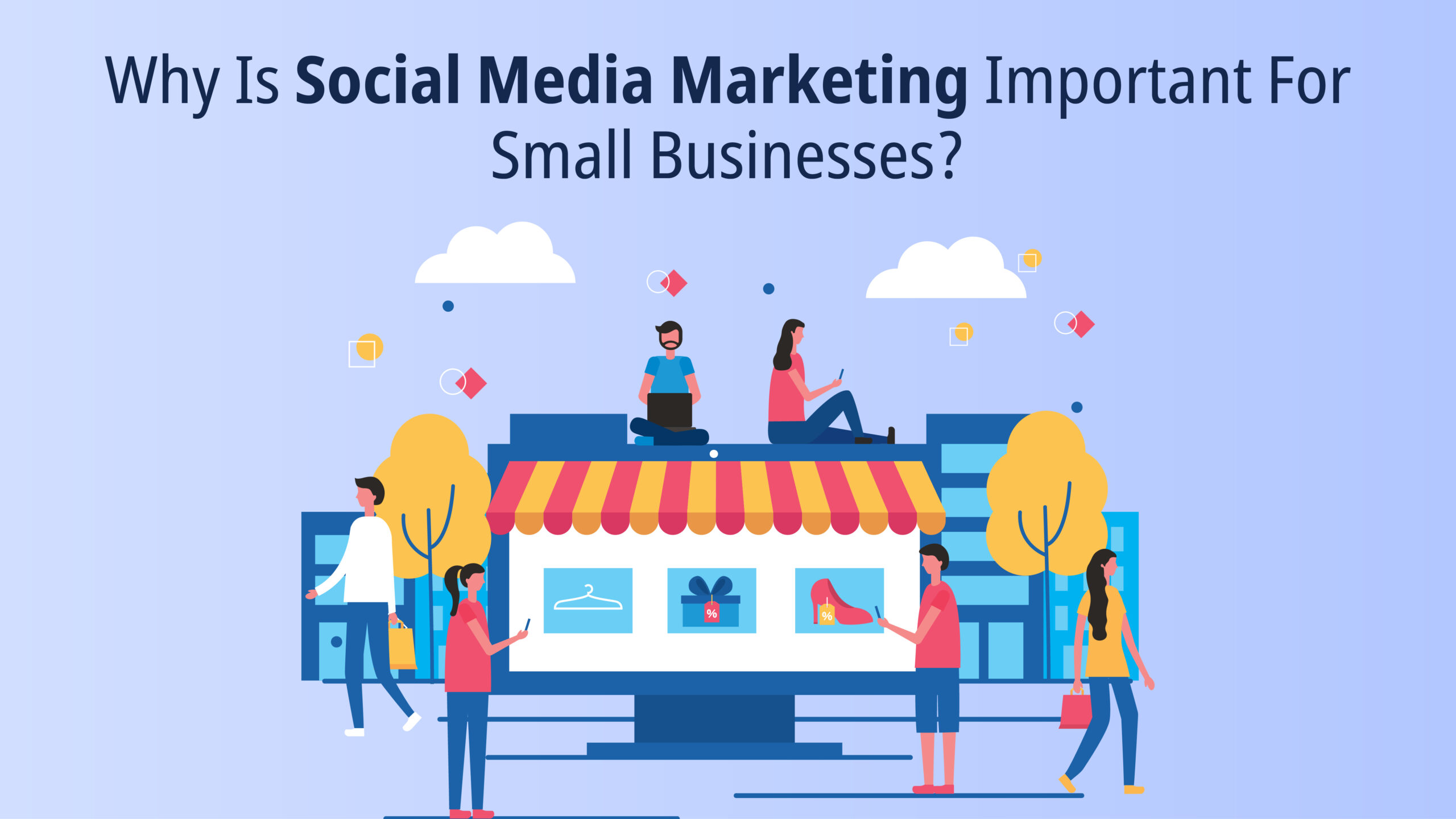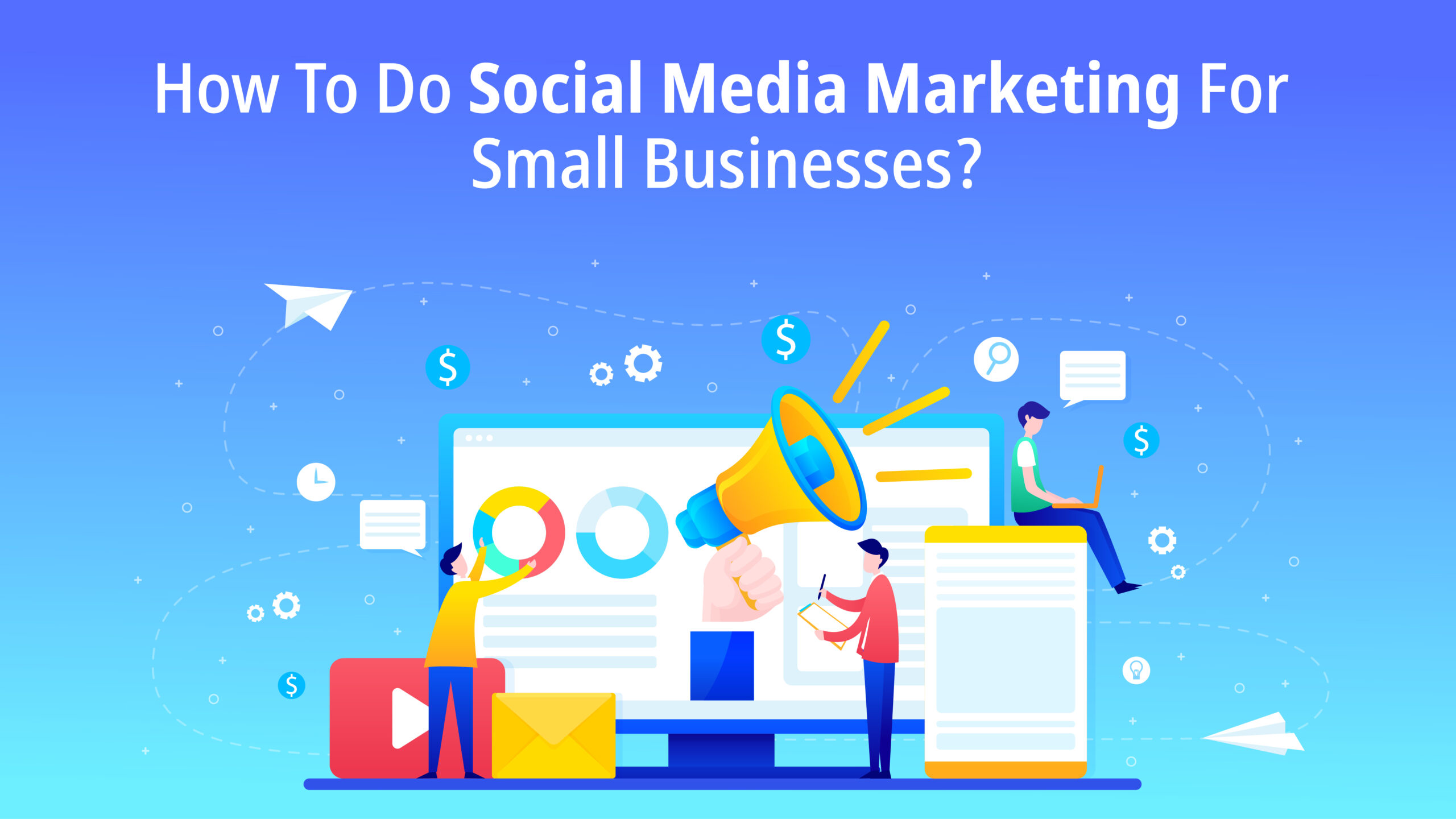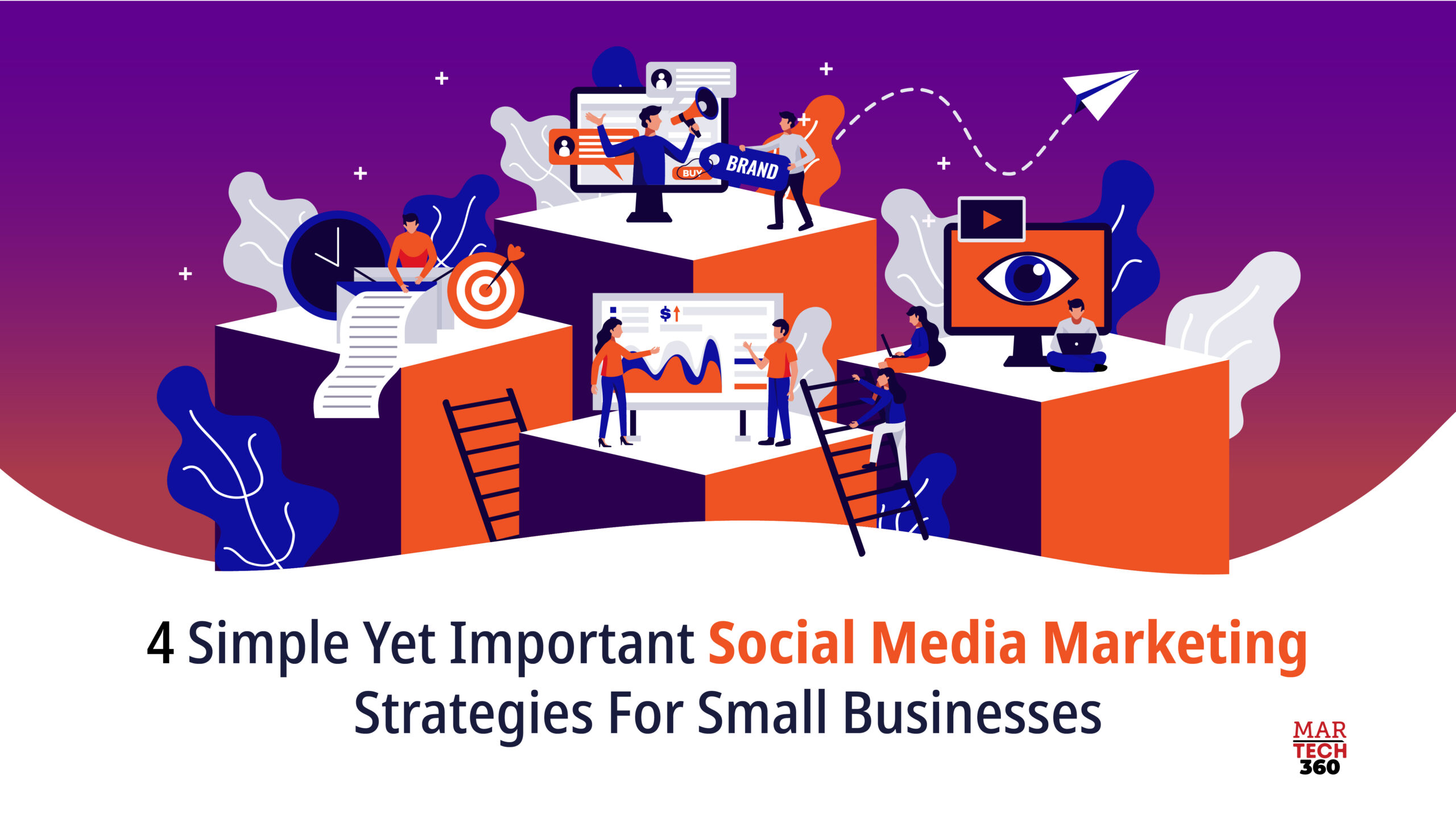Social media marketing for small businesses requires strategic thinking. Unlike large enterprises with dedicated resources, small businesses must be agile, nimble, and creative. Simply investing money isn’t enough; you need to use social media wisely to connect with your target audience. In 2024, the global number of social media users is projected to reach 5.17 billion. This means 5.17 billion opportunities. In this blog, we have discussed everything about social media marketing for business and how important is social media marketing for small businesses.
Why Is Social Media Marketing Important For Small Businesses?
Social media marketing for small businesses offers numerous benefits. Here’s why it’s crucial:
- Increased Brand Awareness: Social platforms offer a broad reach, enabling small businesses to boost brand visibility through engaging content and active participation.
- Cost-Effective Marketing: Social media provides affordable marketing solutions, allowing businesses with limited budgets to promote products/services, target audiences, and generate leads without hefty expenses.
- Customer Engagement and Relationship Building: Direct interaction on social media fosters customer relationships, enabling businesses to offer personalized support, leading to loyalty, repeat business, and positive referrals.
- Market Research and Insights: Social platforms offer valuable data on customer preferences, behaviors, and trends, empowering small businesses to gather feedback, conduct surveys, and refine marketing strategies based on insights.
- Competitive Advantage: A robust social media presence helps small businesses stand out by engaging customers, sharing valuable content, and staying abreast of industry trends, positioning them as leaders in their field and setting them apart from competitors.
How To Do Social Media Marketing For Small Businesses?
To excel in social media marketing for small businesses, strategic utilization of available resources is essential. Here are actionable tips to kickstart your efforts:
- Define Clear Goals: Outline specific objectives such as brand awareness, website traffic, lead generation, or sales to guide your strategy effectively.
- Know Your Audience: Understand your target demographic’s characteristics, interests, and online habits to tailor content that resonates with them.
- Craft Compelling Content: Develop engaging content in various formats like text, images, videos, and stories to captivate your audience’s attention and encourage sharing.
- Select Relevant Platforms: Focus on platforms where your audience is most active, considering mainstream ones like Facebook, Instagram, Twitter, LinkedIn, and niche platforms aligned with your business.
- Maintain Consistency: Regularly post content and engage with your audience to keep your brand visible and foster meaningful connections.
- Leverage Paid Advertising: Utilize targeted ads on platforms like Facebook and Instagram to extend your reach and drive specific actions from your audience.
- Monitor and Analyze Performance: Use analytics tools to track metrics such as engagement, reach, and conversions, and adjust your strategy accordingly for optimal results.
- Engage with Your Audience: Respond to comments, messages, and reviews promptly, and cultivate a sense of community around your brand by encouraging user-generated content and interactions.
By implementing these strategies and adapting them based on insights, small businesses can leverage social media effectively to achieve their marketing objectives and foster growth.
Top 4 Social Media Marketing Strategies for Small Businesses
Below are four essential social media marketing for small businesses in 2024.
Choosing The Right Social Media Platforms
The first and foremost step for successful social media marketing is choosing the right platforms. Choosing the right platforms for your business makes marketing an instant hit because these platforms have a suitable audience for your business.
If your potential prospects spend more time on Instagram or Facebook, research where your target audience spends most of its time and choose accordingly. If you choose platforms where your target audience is rarely available it is just a waste of your resources and efforts.
Understanding Your Audience
Understanding your audience is a very important social media marketing for small businesses. It is important to know what your audience likes and what really matters to them and post accordingly.
Understanding your audience means researching about what content they consume, which accounts they follow, what posts they like, and are likely to share. This helps businesses avoid the mistake of talking just about their products and services and makes your audience build a connection with your brand as they can relate to your content.
Segmenting Your Audience
Now that you know understand what your audience/followers prefer and on which platform it is now time for segmentation. Segmenting your audience directly as per their different demographics such as age, location, job title, interests, etc., helps in personalization.
Identifying what content will most likely engage your followers and segmenting them on specific grounds helps in personalizing the messages and post they see. This ultimately helps you understand what to post on social media that will have the most impact.
Implementing Automation Tools
Once you have chosen the right platform, understood your audience, and separated them accordingly, it is implementation time. All the above strategies are extremely time-consuming and as a small business owner, you may not have the time or resources to manually do it all. Small businesses usually have smaller teams and huge responsibilities, depending on the size of your business, you might be handling the majority of the company’s responsibilities.
Becoming a social media content manager, yourself or hiring someone may both seem too much for you. This is when automation tools and platforms save the day. Use automation platforms like Buffer or Hootsuite and schedule your posts in advance. Automation tools not only allow scheduling posts ahead in time but you can also respond to messages in a timely fashion.
Final Takeaway
Implementing these four simple social media marketing strategies can make a significant impact on the success of small businesses. By focusing on creating valuable content, engaging with the audience, leveraging user-generated content, and tracking and analyzing performance, small businesses can effectively build brand awareness, establish meaningful connections with customers, and drive growth. As social media continues to evolve and play a pivotal role in the business landscape, embracing these social media marketing for small businesses helps to stay ahead of the competition. Remember, the power of social media lies in its ability to connect, engage, and inspire, and by harnessing its potential, small businesses can unlock new opportunities for success.



Comments are closed.